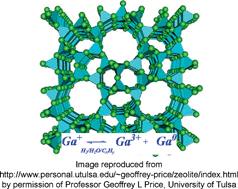On the nature of gallium species in gallium-modified mordenite and MFI zeolites. A comparative DRIFT study of carbon monoxide adsorption and hydrogen dissociation
Abstract
The results of a DRIFT study of carbon monoxide molecular

* Corresponding authors
a
N.D. Zelinsky Institute of Organic Chemistry of Russian Academy of Sciencie, 47 Leninsky pr., 119991 Moscow, Russia
E-mail:
alexander_serykh@yahoo.com
The results of a DRIFT study of carbon monoxide molecular

 Please wait while we load your content...
Something went wrong. Try again?
Please wait while we load your content...
Something went wrong. Try again?
A. I. Serykh and S. P. Kolesnikov, Phys. Chem. Chem. Phys., 2011, 13, 6892 DOI: 10.1039/C0CP02088E
To request permission to reproduce material from this article, please go to the Copyright Clearance Center request page.
If you are an author contributing to an RSC publication, you do not need to request permission provided correct acknowledgement is given.
If you are the author of this article, you do not need to request permission to reproduce figures and diagrams provided correct acknowledgement is given. If you want to reproduce the whole article in a third-party publication (excluding your thesis/dissertation for which permission is not required) please go to the Copyright Clearance Center request page.
Read more about how to correctly acknowledge RSC content.
 Fetching data from CrossRef.
Fetching data from CrossRef.
This may take some time to load.
Loading related content
